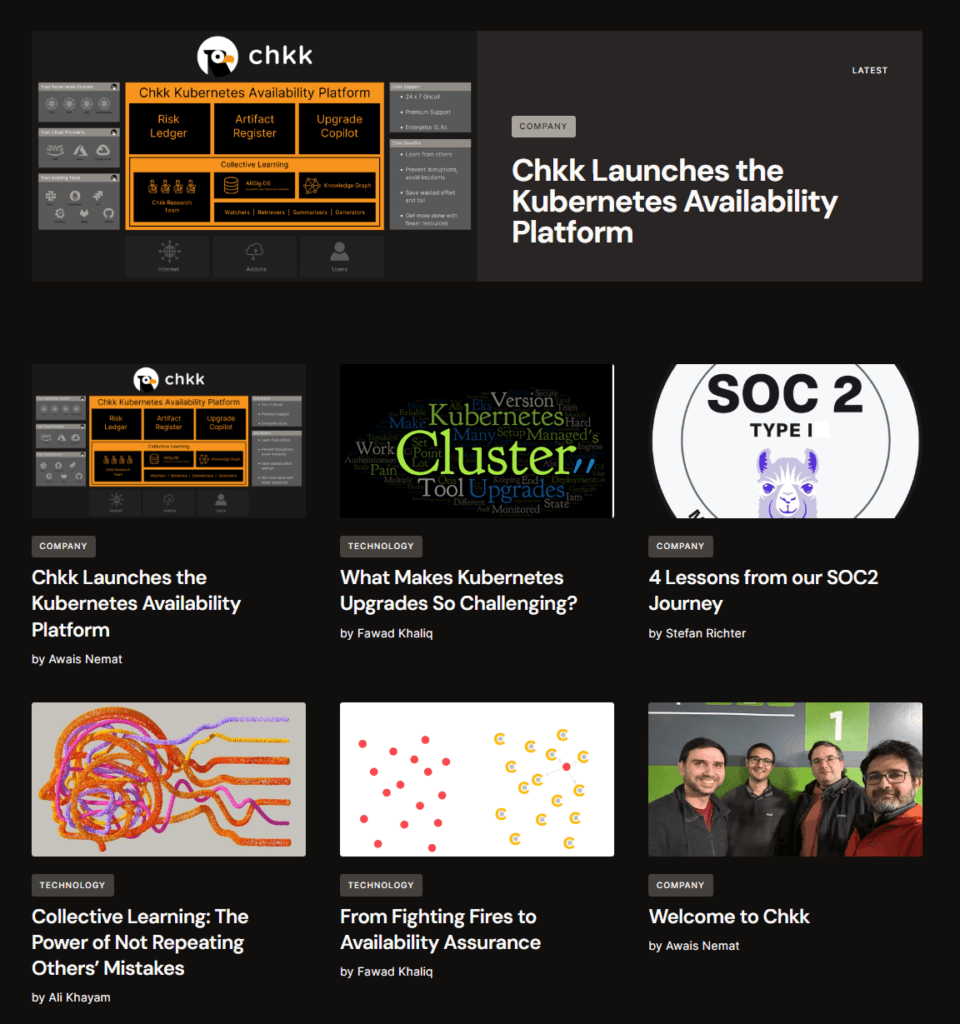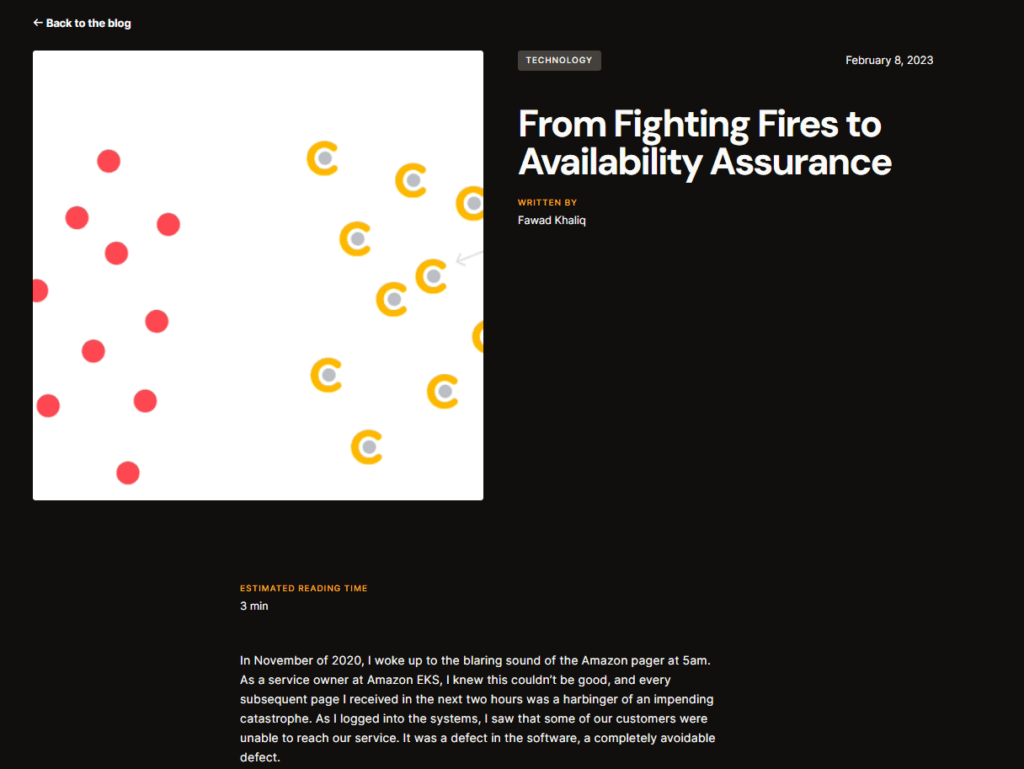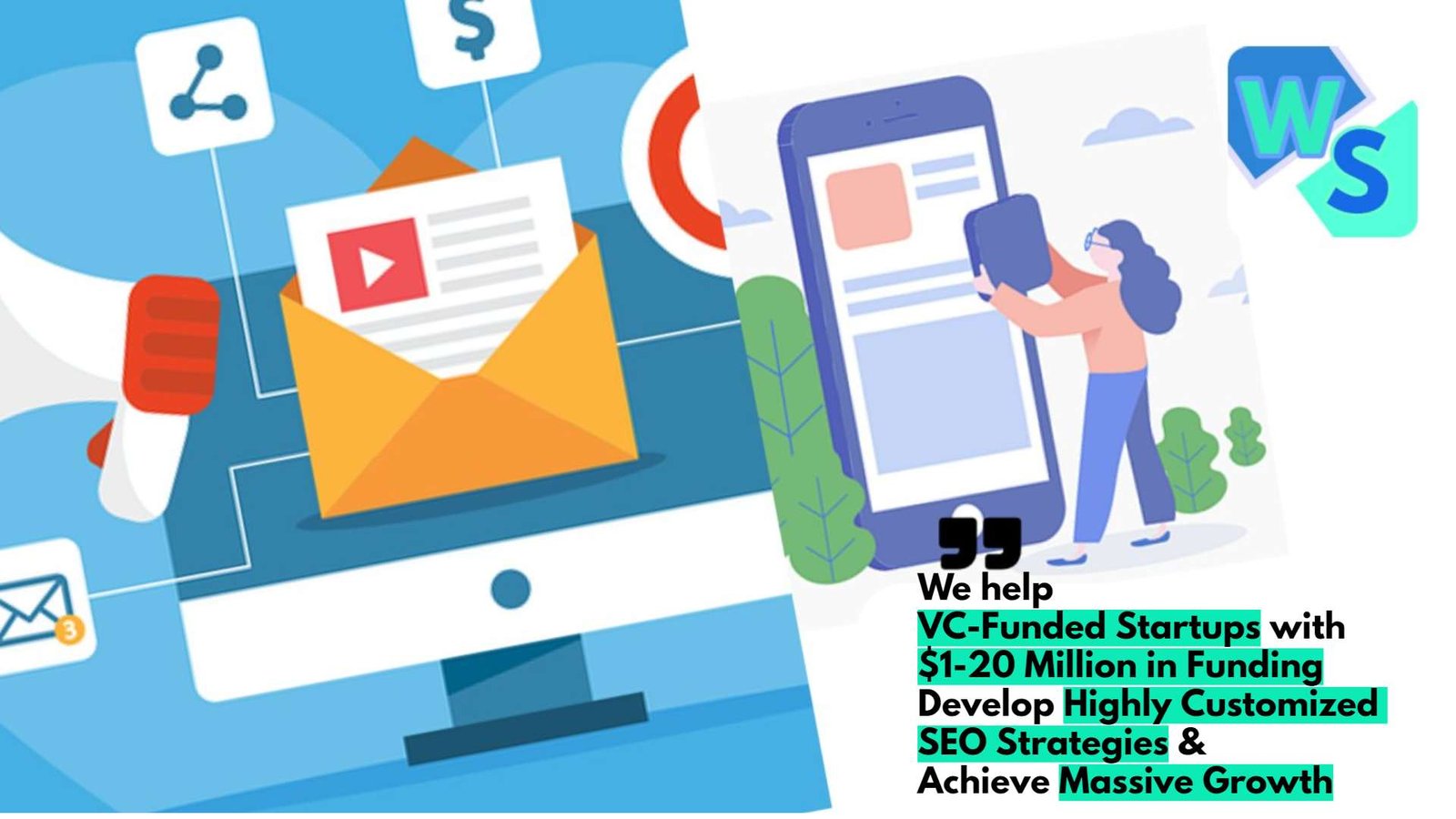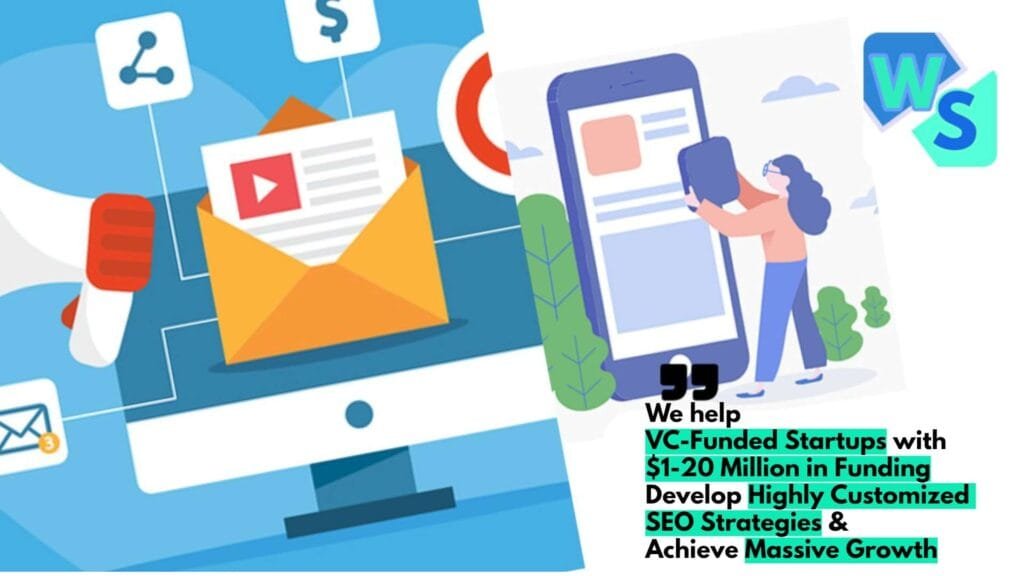This is a pro-bono analysis.
In a sea of startups, every innovative idea deserves its moment in the spotlight. We’ve handpicked and analyzed your website, offering free marketing insights, as our way to nurture the next big thing. We’re passionate about educating and propelling startups like yours forward. If you find our insights valuable, and would like to discuss it further, feel free to schedule a call.
Startups with VC-funding of $1-20 Million can request their own spotlight too.
In order to reach this goal, a single two pronged strategy is what would be needed. Here’s what we suggest –
#1. On-Page SEO Plan for Chkk

Chkk has blog articles that are very poorly done. As Chkk starts to scale, it needs to focus more on inbound marketing and it also needs to come off as a thought-leader in the space.
The current articles are too short, have no internal links and are poorly formatted.

Here are a list of 100 blog post title suggestions along with relevant keywords that you can use to fix it. You can create it pretty fast if you use AI along with content editors (but take care, the articles have to be carefully optimized to improve readability and more importantly, insert internal links for faster indexing by Google) –
- How to Ensure Software Availability: Best Practices
- From Reactive to Proactive: The Shift in Infrastructure Management
- Kubernetes Availability: Identifying and Prioritizing Risks
- Lessons from the Aviation Industry: Avoiding Repeat Mistakes in Software
- Why Continuous Monitoring is Essential for Infrastructure Health
- Avoiding Common Defects in Container Management
- The Importance of Comprehensive Artifact Registers in Cloud Management
- Streamlining the Upgrade Process: Tips for Safe and Timely Updates
- Navigating Software Incidents: An Insider’s Perspective
- Strategies to Improve Software Uptime and Reliability
- How the Role of DevOps and SREs is Evolving in Modern Infrastructure
- The Growing Role of Community Forums in Infrastructure Development
- Cataloging Tools and Techniques for Infrastructure Managers
- Building a Proactive Defense Against Software Failures
- Understanding Availability Risks in Modern Software Deployments
- The Role of Open-Source Communities in Shaping Software Best Practices
- Leveraging IaC Deployments for Better Infrastructure Management
- Decoding Policy Engines: Improving Infrastructure Enforcement
- Transitioning from Traditional Spreadsheets to Advanced Management Tools
- The Importance of Collective Learning in the Software Industry
- Addressing the Gap in Infrastructure Availability Assurance
- Strategies to Reduce Operational Toil for Infrastructure Teams
- The Shift from Vendor-led to DevOps-led Infrastructure Availability
- Preempting Downtime: How to Prevent Failures Before They Happen
- Modern Tools for Risk Discovery and Remediation in Infrastructure
- Understanding the Landscape of Availability Assurance Tools
- Collaborative Problem Solving in Infrastructure Management
- How Standardized Schemas are Transforming Risk Resolution
- Best Practices for Safe and Efficient Infrastructure Upgrades
- Leveraging Hyper-Specialized Tools for Improved Availability Assurance
- The Future of Infrastructure: Collective Learning and Collaboration
- Building a Resilient Software Ecosystem: Key Strategies
- How to Address Common Errors in Kubernetes Deployments
- Tips for Managing Infrastructure Across Multiple Cloud Platforms
- Why Regular Software Upgrades are Essential for Security and Performance
- Lessons from Major Software Failures: How to Avoid Repeat Incidents
- Embracing a Culture of Availability Assurance in Infrastructure Management
- The Role of Community Learning in Reducing Software Failures
- Streamlining Operations: Reducing the Burden on Infrastructure Teams
- The Growing Importance of Cloud and SaaS in Modern Infrastructure
- Key Strategies for Efficient Container Image and Dependency Management
- Modern Challenges in Infrastructure Availability and How to Address Them
- Embracing the Shift from Reactive Incident Management to Proactive Planning
- Strategies to Maximize Software Uptime and Minimize Disruptions
- Building a Collaborative Network for Infrastructure Best Practices
- How to Reduce the Risk of Software Incidents and Failures
- The Importance of Staying Updated in the World of Infrastructure Management
- Understanding and Managing Availability Risks in Software Deployments
- Insights into the World of DevOps, SREs, and Infrastructure Teams
- Best Practices for Collaborative Risk Resolution in Software Management
- Addressing the Shift in Responsibility for Infrastructure Availability
- The Importance of Continuous Learning and Collaboration in Software
- Strategies to Streamline and Simplify Software Upgrade Processes
- Decoding Availability Assurance in Modern Infrastructure
- How to Leverage IaC Deployments for Better Management
- Strategies for Proactively Addressing Software Risks and Challenges
- The Changing Landscape of Software Incident Management
- Building Resilient Software Systems: Lessons from Major Failures
- Tips for Navigating the Complex World of Software Dependencies
- The Role of Community Forums in Shaping Infrastructure Best Practices
- Key Tools and Techniques for Efficient Infrastructure Management
- Why Collective Learning is the Future of Infrastructure Management
- Strategies to Ensure Continuous Software Availability and Uptime
- Building a Collaborative Ecosystem for Software Best Practices
- Understanding the Role of DevOps and SREs in Modern Infrastructure
- Navigating the Challenges of Multi-Cloud Infrastructure Management
- Key Strategies for Efficient and Safe Software Upgrades
- Embracing Proactive Strategies for Infrastructure Availability Assurance
- How to Avoid Common Mistakes in Kubernetes Deployments
- The Importance of Regular Updates in Infrastructure Management
- Strategies to Build a Resilient and Reliable Software Ecosystem
- Why Availability Assurance is Crucial in Modern Software Management
- Lessons from Major Software Incidents: How to Avoid Repeat Failures
- Building a Network of Professionals for Collaborative Learning
- Addressing the Shift in Responsibility for Software Availability
- Tips to Maximize Software Uptime and Minimize Disruptions
- Strategies for Efficient Container and Dependency Management
- Building a Proactive Defense Against Infrastructure Risks
- Embracing the Future of Infrastructure: Collective Learning and Collaboration
- The Role of Open-Source Communities in Software Best Practices
- Addressing Modern Challenges in Infrastructure Availability Assurance
- Best Practices for Collaborative Problem Solving in Software
- Leveraging Modern Tools for Efficient Risk Discovery and Remediation
- How Standardized Schemas are Shaping the Future of Risk Resolution
- Understanding the Landscape of Availability Assurance Tools and Techniques
- Building a Collaborative Network for Infrastructure Development
- Addressing the Growing Role of Cloud and SaaS in Infrastructure Management
- Best Practices for Safe and Efficient Infrastructure Upgrades
- How to Address Common Errors and Risks in Software Deployments
- Strategies to Reduce Operational Toil and Improve Efficiency
- Decoding Policy Engines and Their Role in Infrastructure Management
- Embracing a Culture of Availability Assurance in Modern Software
- Leveraging Hyper-Specialized Tools for Improved Infrastructure Management
- The Future of Infrastructure: A Vision of Collective Learning and Collaboration
- Understanding the Shift from Vendor-led to DevOps-led Availability
- Insights into the World of Availability Risks and How to Address Them
- Strategies to Ensure Continuous Monitoring and Availability in Software
- Building Resilient Software Systems: Key Strategies and Best Practices
- The Role of Community Learning in Reducing Infrastructure Failures
- Navigating the Complex World of Software Dependencies and Updates
#2. Off-page SEO Plan for Chkk
Chkk’s blog has quite low Domain Authority and Domain Rating. It’s Ahrefs’ DR is just 14.
We suggest reaching out to blogs in the industry, asking to guest post. With the influx of GPT4 and other content marketing software, most blogs are not too agreeable to this suggestion, so you may need to keep some marketing budget aside for payments for backlink insertions and guest post placements.
However, you should hire a seasoned SEO guy for this as you already have a very high spam score and you don’t want to get backlinks from the wrong websites.
Here’s a list of 30 high quality and relevant blogs in your niche that you should try to guest post at:
- Kubernetes Blog – The official blog for Kubernetes, which often features deep dives and use-case examples.
- The New Stack – Covers the services and infrastructures that developers build and the cultural impact.
- DZone Cloud Zone – A popular community for developers with a focus on cloud technologies.
- InfoQ – They cover changing trends in software development, DevOps, and cloud infrastructure.
- Cloud Native Computing Foundation (CNCF) Blog – Focused on cloud-native applications and infrastructure.
- Container Journal – Everything about container technologies, from Docker to Kubernetes.
- DevOps.com – A leading source for everything related to DevOps, cloud, and container technologies.
- A Cloud Guru Blog – Offers cloud computing training and often publishes insightful articles on related topics.
- DigitalOcean Community Tutorials – While DigitalOcean offers cloud services, their community tutorials are widely recognized.
- The Enterprisers Project – Covers the intersection of business and IT, especially around DevOps and cloud.
- Hackernoon – While broader than just DevOps or cloud, they have a significant readership interested in these topics.
- JAXenter – Focuses on Java, cloud, microservices, and other related topics.
- Opensource.com – For everything open source, including cloud technologies and DevOps.
- Cloud Computing News – News and insights related to cloud technology.
- TechBeacon – Covers DevOps, cloud, and broader IT topics with in-depth articles.
- Sysdig Blog – While they offer their own products, they also have great content about cloud-native applications.
- Cloud Academy Blog – Offers cloud training and publishes articles on AWS, Azure, GCP, and DevOps topics.
- Linux.com – They often cover topics related to cloud-native technologies and the Linux infrastructure supporting them.
- High Scalability – All about the architectures, platforms, and tools used to achieve high performing IT.
- Dev.to – A community of software developers who write articles about a variety of topics, including cloud and DevOps.
- SitePoint – While more focused on web development, they also delve into backend, DevOps, and cloud topics.
- Planet DevOps – A collection of DevOps content from around the web.
- Continuous Delivery – This blog is about continuous delivery and the broader DevOps culture.
- Logz.io Blog – While they offer log management and monitoring, they also write about DevOps, cloud, and Kubernetes.
- Scalyr Blog – Topics often include cloud infrastructure, DevOps, and modern software delivery.
- Raygun Blog – Beyond their product, they delve into DevOps, cloud, and software best practices.
- Docker Blog – The official blog for Docker, which often discusses container best practices and related technologies.
- CIO Review – While it’s broader in IT scope, there’s a significant emphasis on cloud, DevOps, and IT management.
- The Ops Blog – A practitioner-driven community blog focused on operations topics.
- CloudTech – Offers the latest cloud news, analysis, and advice.

Related: Check out our free SEO suite

Would You Like us to help take Chkk‘s Traffic to 10k and beyond?
What we showed you was just the basics. But of course, a plan is only as good as it’s execution. So, you could execute all of this yourself, or you could count on us to do it as well.
We could do so much more, such as-
- Reverse HARO and get experts to share their thoughts with us for Chkk’s blog,
- Run ads and grow your Facebook page and convert them into your Facebook group members.
- Use Javascript code to massively boost your twitter presence,
- Create leads for capture and boost your inbound marketing.
You can reach me directly by filling out this form in the sidebar or schedule a meeting here.
At WinSavvy, we manage everything, from digital marketing strategy formulation to execution, ensuring you can focus on what you do best – running your startup. We also provide weekly updates and I am personally available as a dedicated point of contact for any of your queries.
Best regards,
Adhip Ray
Founder, WinSavvy




















